Barack Obama's plan for Iraq is bomb, bomb some more and send US troops in.
That's clear by today's Defense Dept announcement:
Strikes in Iraq
Attack, fighter, and remotely
piloted aircraft conducted 14 strikes in Iraq, coordinated with and in
support of the Iraqi government:
-- Near Habbaniyah, a strike struck an ISIL tactical unit and destroyed an ISIL building.
-- Near Haditha, a strike struck an ISIL tactical unit and destroyed two ISIL vehicles.
-- Near Kisik, two strikes struck an ISIL tactical unit and destroyed ten ISIL fighting positions.
-- Near Mosul, three strikes
destroyed nine ISIL fighting positions, an ISIL command and control
node, and two ISIL assembly areas.
-- Near Ramadi, six strikes struck
an ISIL tactical unit, suppressed an ISIL mortar system, denied ISIL
access to terrain, and destroyed an ISIL mortar system, three ISIL
fighting positions, an ISIL rocket-propelled grenade system, two ISIL
vehicle bombs, an ISIL building, two ISIL heavy machine guns, an ISIL
tunnel entrance, two ISIL petroleum oil and lubricant trucks and an ISIL
front end loader.
-- Near Sinjar, a strike destroyed four ISIL command and control nodes.
Task force officials define a
strike as one or more kinetic events that occur in roughly the same
geographic location to produce a single, sometimes cumulative, effect.
Therefore, officials explained, a single aircraft delivering a single
weapon against a lone ISIL vehicle is one strike, but so is multiple
aircraft delivering dozens of weapons against buildings, vehicles and
weapon systems in a compound, for example, having the cumulative effect
of making those targets harder or impossible for ISIL to use.
Accordingly, officials said, they do not report the number or type of
aircraft employed in a strike, the number of munitions dropped in each
strike, or the number of individual munition impact points against a
target.
And the lack of a real plan for anything more than more of the same is clear in the talk as well.
In an apparent chatty mood yesterday while flying into Paris, US Secretary of Defense Ash Carter talked with reporters. Dan Lamothe (WASHINGTON POST) reveals
the chatty Carter declared that more US troops will likely be headed to
Iraq ("The president has indicated that wherever there is additional
opportunity to make a difference according to the strategy, we'd be
willing to do that") and that this is due to the 'success' in Ramadi. Andrew Tilghman (MILITARY TIMES) notes, "U.S. military officials are in high-level talks with the Iraqis about
potentially sending hundreds of additional troops to Iraq for training
and supporting the upcoming invasion of the Islamic State group’s
stronghold in Mosul."
It's no longer just Ash Carter going public, Kristina Wong (THE HILL) reports:
The United States might send more trainers to Iraq to help
local forces retake Mosul from the Islamic State in Iraq and Syria
(ISIS), a U.S. defense official said Wednesday.
"The
reason we need new trainers or additional trainers is because that's
really the next step in generating the amount of combat power needed to
liberate Mosul," said Army Col. Steve Warren, a spokesman for the ISIS
effort.
Carter's remarks came up in today's US State Dept press briefing moderated by spokesperson Mark Toner.
QUESTION: And in fact, today – I think it was today – Secretary Ashton said – Carter said that they are also looking for Arab countries to participate in the training and equipping and so on. But you talked about the urgency of the situation – we remember as far back as last spring when they were talking about --
MR TONER: Right, Said, but I mean --
QUESTION: -- liberating Mosul and so on.
MR TONER: Right.
QUESTION: But the longer you wait, it seems that the longer that ISIS can also establish roots in the ground.
MR TONER: Well, I mean, I would argue the opposite. I mean, with the systematic and steady approach that the Iraqi forces – again, with our assistance and with other members of the coalition’s assistance – have been making against ISIL, they’ve been losing ground. They’ve been losing territory. And we’re going to keep applying pressure. That’s something we’ve talked about. But you can’t let – I mean, there’s just an urgency overall. Certainly, cultural preservation is part of it, the preservation of historical sites is part of it. But it’s also, as I said, the constant threat that these innocent civilians under their rule or under their brutal dictatorship are suffering that also lends urgency to our mission.
The 'success' isn't a 'success.'
Iraqi forces are still trying to clear the area of the Islamic State.
Victory was declared before it was earned.
Secondly, as photos of the area demonstrate, the real 'winning' fighter in that battle was . . . War Planes. US war planes bombing Ramadi.
The city is in ruins.
It is so bad that Iraq's Shi'ite and Sunni leaders are saying no battle can result in the 'Ramadi option' again.
But a whorish press in the US has allowed the lies of Ramadi to stand so Barack can claim that he's building on 'success.'
Amnesty's report was an issue raised in today's State Dept press briefing.
QUESTION: A mirror image of that story around Mosul, overnight Amnesty International announced a report saying that the KRG Peshmerga – your allies in this fight against ISIS – have begun cleansing Sunni Arab villages that they’ve recaptured from ISIS, but now they’re driving out civilians and destroy – and there’s satellite imagery in the report showing destroyed buildings and large areas – maybe thousands of houses destroyed by your allies.
MR TONER: Yeah, no, we’re aware of the report, David, and obviously take it very seriously. We’re looking at its allegations and contents. And I can’t comment at this point on any of the particular claims except to say that as government forces liberate territory from ISIL throughout Iraq, there must be security for all civilians to prevent the actions of those who would take advantage of the conflict to commit crimes or engage in any way in vendettas.
Please.
QUESTION: A Pentagon spokesman said on the same incident this morning that any questions about whether this would affect the U.S.’s relationship with the government in Kurdistan, that’s a question for you guys. Could you anticipate that there will be questions – that there will be conversations with President Talabani about what KRG forces have been doing?
MR TONER: I mean, I can anticipate that – we have a relationship with the government of Kurdistan that we can talk about these issues, and these are ongoing concerns and issues that we’ve talked about not just with respect to Kurdish forces but throughout Iraq. And frankly, the new government in Iraq has, we believe, made an effort in – as these new territories are liberated from ISIL to bring back stability, reconstruction; to rebuild hospitals, schools, et cetera so that people can return and feel safe in returning to these liberated areas. That’s absolutely a key component of our strategy.
Of the new report, TELESUR reports:
Peshmerga forces in northern Iraq, trained and equipped by the United States, are allegedly razing Arab towns liberated from the Islamic State group. A human rights group is accusing the armed forces of the Kurdistan Regional Government (KRG) of carrying out a deliberate campaign to prevent the return of Arabs to towns in Iraq once occupied by the Islamic State group, a practice it says may amount to war crimes.
War Crimes.
And yesterday's snapshot noted the War Crimes of the Shi'ite based government out of Baghdad as it went after Sunnis.
Iraqi civilians are under attack and the Islamic State is only one threat to them.
Jared Malsin (TIME) reports:
The kidnapping
last week of three Americans in Baghdad underscores the central but
volatile role of predominantly Shiite, pro-government militias in the
ongoing crisis in Iraq.
U.S. and Iraqi officials confirmed to Reuters
on Tuesday that the three American contractors who disappeared are
being held by a militia, so far unnamed. The incident is the latest
illustration of how militias often allied with Iran remain an
unpredictable element in Iraq’s shifting landscape of power, posing a
dilemma both for the government in Baghdad and for the U.S.-led
coalition battling ISIS.
Sunday, Mohammed Tawfeeq (CNN) broke the news that 3 Americans were missing in Iraq. Monday, CBS NEWS and AP report, "A group of Americans who went missing over the weekend in Iraq were kidnapped from their interpreter's home in Baghdad, according to an Iraqi government intelligence official."
Senator Marco Rubio is running for the Republican Party's presidential nomination. NBC NEWS reports that Rubio has floated that Iran was behind the kidnapping and insists that Barack's responsible for motivating "people to grab Americans because, you know, if you grab a group of Americans you can get something from Barack Obama."
Meanwhile the Shi'ite attacks on the Sunnis continue.
 Graphic: terrorist Iraqi army/militiamen setting dead bodies on fire purportedly in Diyala province -
Graphic: terrorist Iraqi army/militiamen setting dead bodies on fire purportedly in Diyala province - These are Iraqi forces. Even the militias are Iraqi forces because Prime Minister Haider al-Abadi brought them into the fold.
Haider's been a failure as prime minister.
That becomes more and more evident.
Iraq
 Donatella Rovera
Donatella Rovera
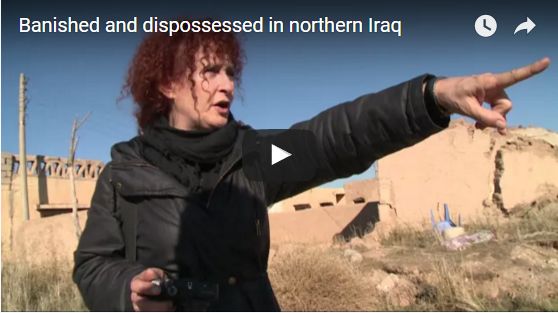
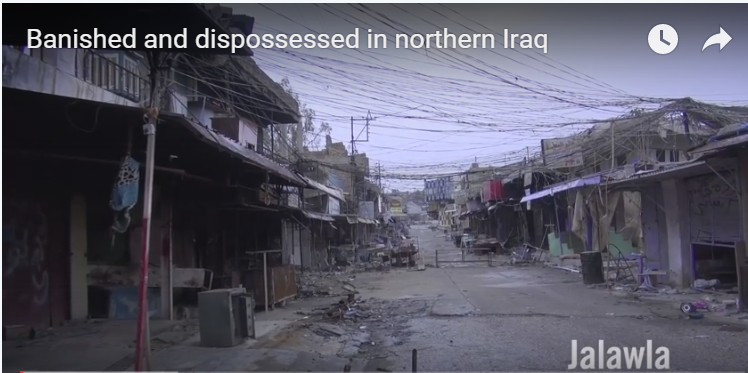

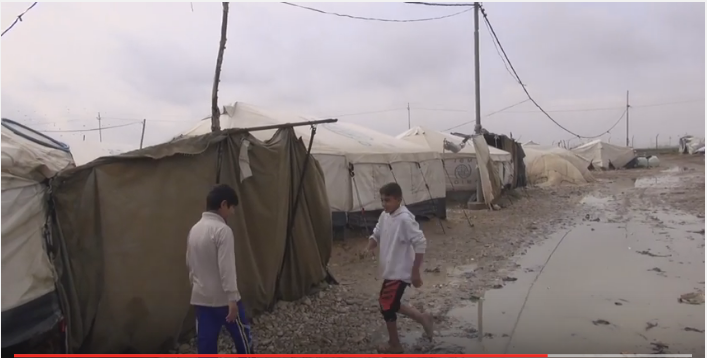
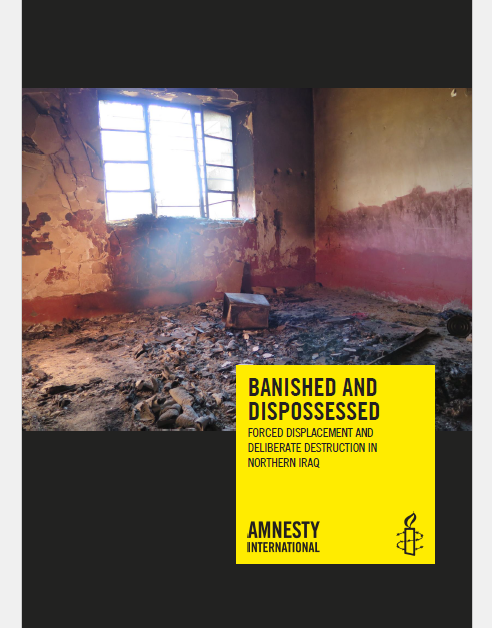
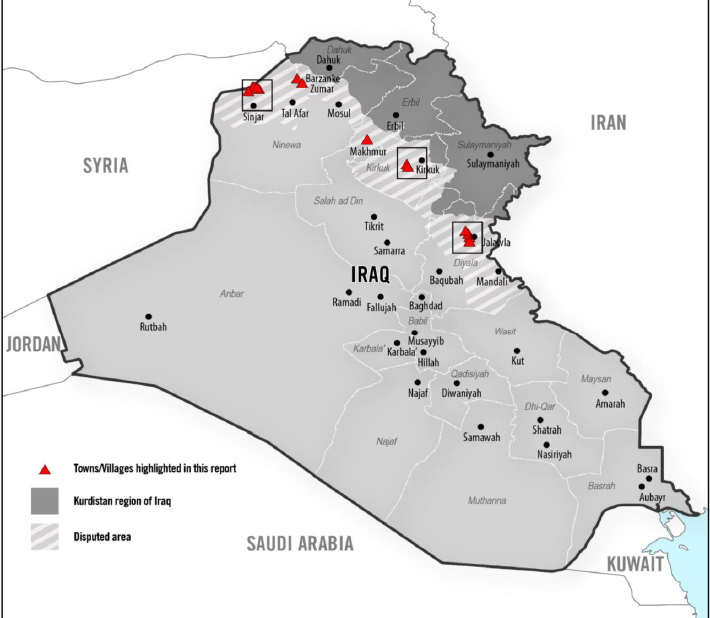
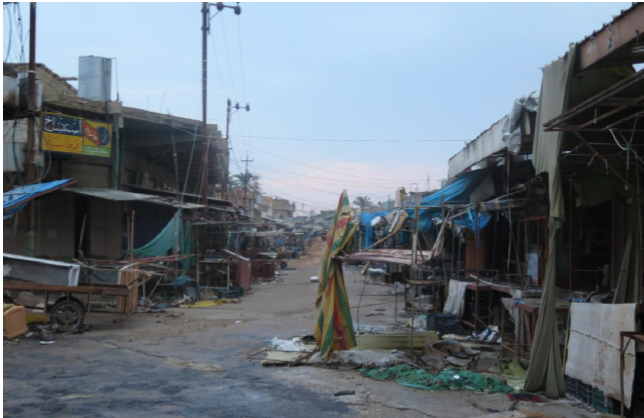
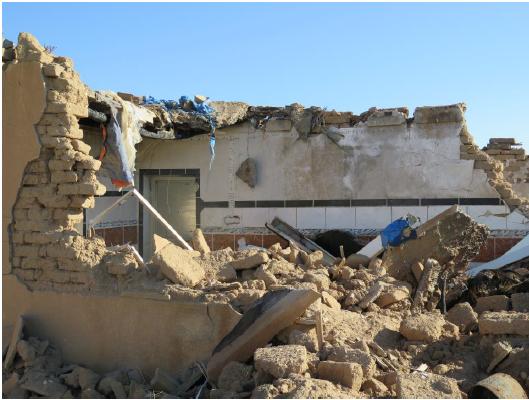
 Marwan Qassami
Marwan Qassami

